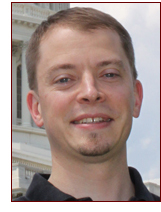Government Affairs
The Fiscal Cliff
We had another great and productive annual MCAA Midyear Meeting in Park City, Utah, from Sept. 12-14, 2012. Nearly 80 members of the MCAA made it to the Midyear Meeting, where we heard from MCAA Committee Chairmen and Chairwomen and had a great discussion surrounding the current climate in Washington, D.C., with the looming November elections.
During these three days, we heard plenty to be excited about and had encouraging presentations on the plans for the MCAA Convention at the World of Concrete/World of Masonry in Las Vegas in February 2013. Unfortunately, I was tasked with presenting the overview of Washington, D.C., and cut the enthusiasm with discussions surrounding the “fiscal cliff.” The fiscal cliff is the term given to the looming expiration of the current tax rates put in place in 2001 and 2003, and the across the board sequestration cuts of $1.2 trillion included under the Budget Control Act.
The non-partisan Congressional Budget Office recently warned that if Congress and the President do not act to halt these coming tax increases and across the board spending cuts, our country will most likely fall into another recession – one that very well could be more drastic than the one we just felt.
So what does this all mean to members of the MCAA? If Congress does not act to prevent the expiration of the current tax structure at the end of 2012, the following tax implications will occur:
- The 10 percent tax bracket will disappear and the 25 percent, 28 percent, 33 percent, and 35 percent rates will revert to 28 percent, 31 percent, 36 percent, and 39.6 percent, respectively.
- The current Estate Tax levels of a $5.12 million exemption and maximum rate of 35 percent are set to revert back to an exemption of just $1 million and a maximum rate 55 percent.
- The Alternative Minimum Tax (AMT) will hit thousands of middle class taxpayers in 2013, if Congress fails to act. The AMT was originally intended to ensure that very wealthy taxpayers were not able to use loopholes to pay no taxes. However, the AMT was not indexed for inflation and as a result, without a “patch,” will engulf middle class taxpayers it was never intended to impact.
As I wrote about earlier this year, many of these issues were brought to the attention of Congress during the annual Masonry Industry Legislative Conference in Washington, D.C., in May, but it is imperative that you continue to build relationships with your members of Congress and that you continue to tell your stories. These are drastic increases in taxes that will hit your bottom line, block your expansion efforts, and further stall our economy, during a time when the economy is already sputtering along.
I took great pride in seeing so many passionate, involved, and informed Members of MCAA in Park City and know that participation in Las Vegas, Washington, D.C., and at the Midyear Meeting in 2013 will be even stronger. MCAA is only as strong as its members; the masonry industry is only as strong as its companies; and the economy is only as strong as the companies that build our infrastructure.
While Congress currently is not in session with the approaching elections on Nov. 6, 2012, it will return to Washington, D.C., soon after the elections for a “lame duck” session of Congress, where MCAA and The Keelen Group will urge action on these issues – lest we fall off the “fiscal cliff.”

 Stephen A. Borg
Stephen A. Borg